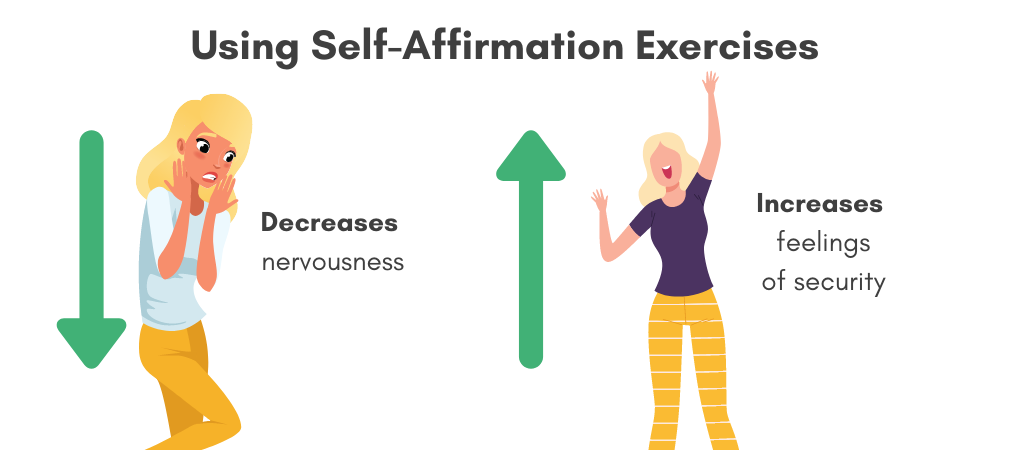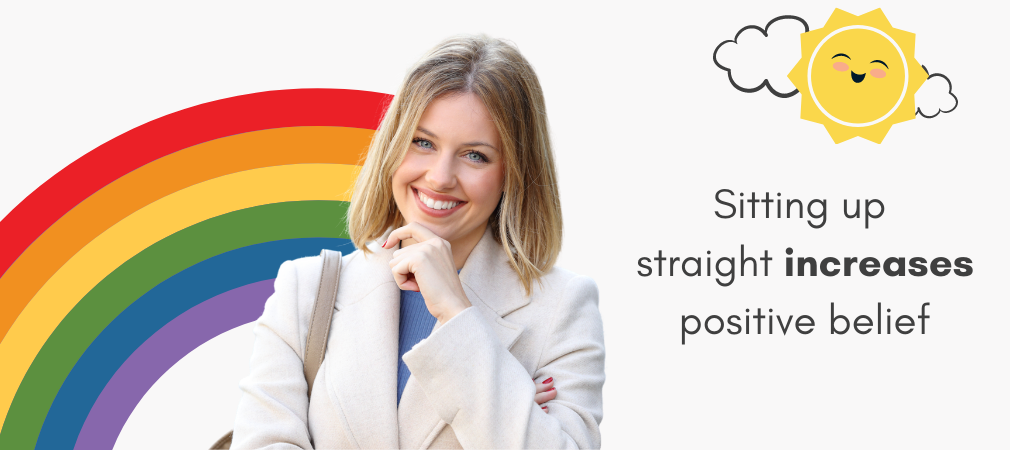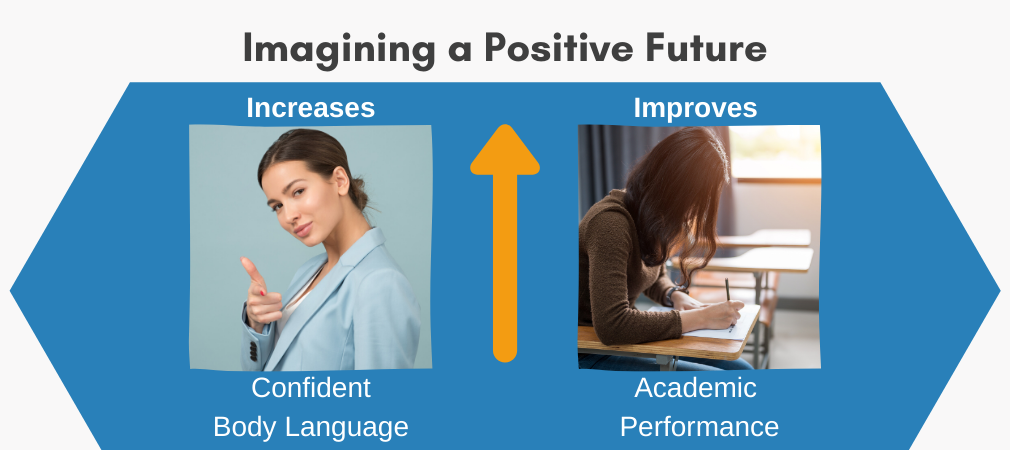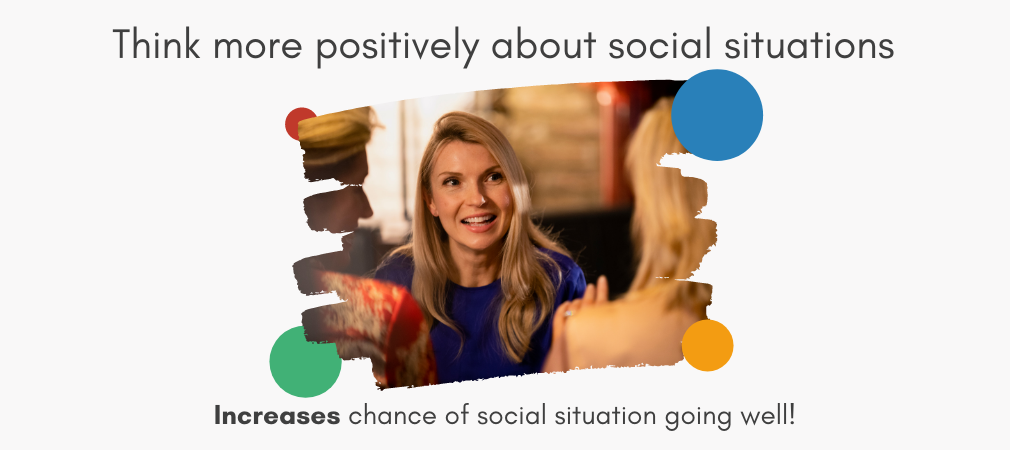How to Feel More Confident in Social Situations
It’s not uncommon for people to be uncomfortable in social settings, especially when unfamiliar with the group.
And if you become increasingly self-conscious and assume that people aren’t interested in talking to you, the problem will likely worsen.
Especially if being anxious and avoidant results in fewer people engaging with you.
So, how do you break this pattern?
A straightforward way to help boost your confidence is to use the ‘acceptance prophecy.’
What is that, you ask?
It means that when you meet someone new, they are more likely to like you if you believe you will like them.
In the Journal of Psychological Science, Stinson et al. (2011) had test participants who labelled themselves socially insecure complete a self-affirmation exercise.
When the researchers followed up with the participants 4 and 8 weeks later, the self-affirmation group reported feeling less nervous and more secure than the control group.

Takeaway Message
Merely expecting to like people before you meet them makes it more likely they will like you (also known as the ‘acceptance prophecy’).
And this can be an essential strategy if you struggle with the ‘rejection prophecy.’
As you can probably guess, the rejection prophecy involves expecting people to dislike you, which leads to behaving nervously, which increases your chances of being socially rejected.
So, if you are uncomfortable in social situations, I highly encourage you to try the acceptance prophecy. It could help make social outings more enjoyable.
3 Quick Tips to Improve Social Confidence
Approximately 1 in 8 people struggle with Social Anxiety Disorder.
And while this figure is relatively high, it doesn’t capture the number of people who feel uncomfortable in social situations but don’t meet the criteria for a disorder.
So, let’s look at three more strategies that can help you feel more comfortable in social settings.
1. Sit Up Straight
The body and the mind are connected, and watching research move upstairs to the brain has been exciting over the past two decades.
Not surprisingly, we’ve learned that how you carry your body can affect how you feel.
Brinol et al. (2009) studied the impact of posture on self-confidence.
Results showed that study participants sitting up straight were more likely to believe the positive things the researchers asked them to write about themselves.
So, if you want to feel more confident quickly, make a point of sitting up straight.
2. Imagine a Positive Future
It helps to picture what you want; this is more than a pleasant thought.
Picturing a positive future identity can be incredibly helpful when encountering stressful everyday experiences that shake your confidence.
Destin et al. (2018) found that when students were asked to imagine a positive future identity, they displayed more confident body language and performed better on a tough academic test.
Creating a positive identity for yourself will not only increase confidence, but it will increase your likelihood of success in the future.
3. Confidence Counts
In the first study, we looked at the power of the acceptance prophecy (i.e., when you expect to like people, they are more likely to like you).
But what if you expect the whole social situation to go well?
Masi et al. (2011) conducted a meta-analysis (an analysis of a collection of studies) that showed that changing how people think about social situations (i.e., thinking more positively about these situations) helps to increase the chance that social situations will go well.
Interesting! This appears to be one of those situations where thinking positively is more than just a collection of pleasant thoughts.
Are there specific social situations that make you uncomfortable?
How do you deal with it?
Article by
Trevor Sullivan, MA, RP
Registered Psychotherapist
September 21, 2020


